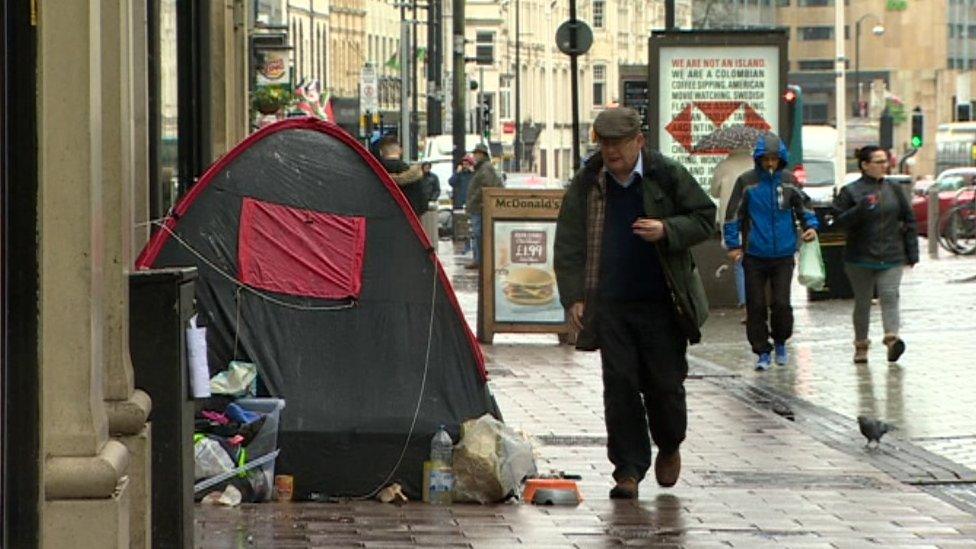Cardiff homelessness problem is the 'worst in decades'
- Published
How bad is the current homelessness problem?
Homelessness in Cardiff is at its worst level in decades, according to a campaigner and former drug addict who lived on the streets as a teenager.
Mathew Hancock, 37, said he often avoids the city centre because it brings back painful memories.
At least 11 homeless people died in Wales in 2017, according to the Office for National Statistics (ONS).
Cardiff council said it was working with other agencies to provide an "enormous range" of help and support.
"I would rather not come out to see the pain because everywhere you look is pain, pain, pain," Mr Hancock said.
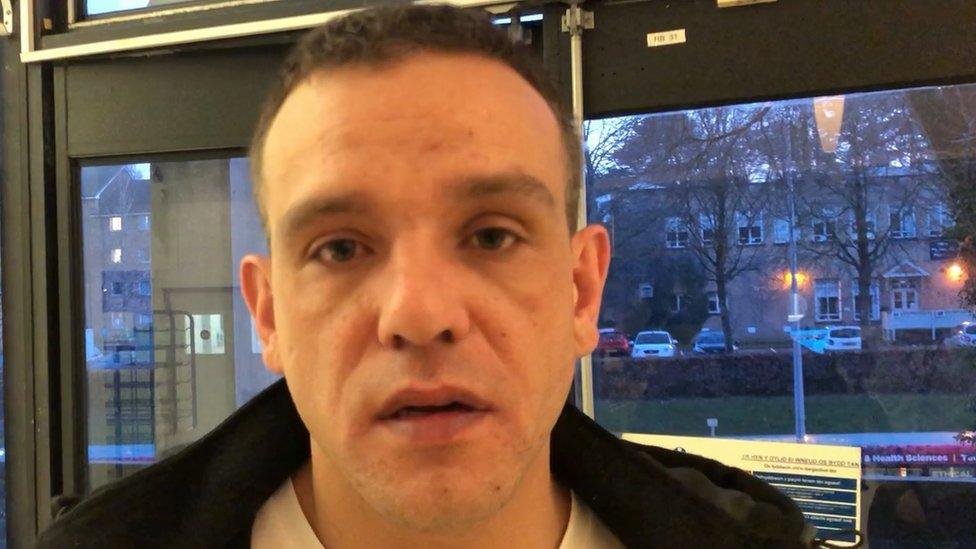
Mathew Hancock was homeless at 14 and addicted to crack by 15
The death rate of homeless people in the most deprived areas of Wales is more than three times that of the least deprived areas, fresh ONS analysis has shown, external.
Mr Hancock lived on the streets from the age of 14, where he became addicted to crack cocaine - a habit which "plagued" him for almost 20 years.
"It was horrific," he recalled, when asked what it was like living on the streets. "It was freezing cold and you had no-one to turn to.
"I was on crack cocaine from the age of 15. For 19 years it plagued my life. In that whole 19 years, I have never seen it this bad."
Between 2013 and 2017, Cardiff and Wrexham had the highest rates of deaths among homeless people at 1.7 per 100,000 population.
Almost half of the homeless deaths across Wales in 2017 were in Wrexham, where four neighbourhoods are in the top 10% most deprived in Wales.

Now in his late 30s, Mr Hancock lives with Crohn's disease, a condition which affects the digestive system.
In addition to the physical scars, Mr Hancock, who attributes his recovery to the 12-step programme, external, still carries the emotional and mental anguish.
After seeing a friend sleeping on the street in freezing cold temperatures recently, he was compelled to go home and sleep in a room with the windows wide open, without a blanket.

Lee Knight (left) said he was "scared" and "upset" when his best friend Mathew Hancock (right) took him to a homeless shelter in Cardiff
"I wanted to remind myself," he explained, becoming visibly moved. "Flip me, man, it was cold. It was really, really, horrifically cold. And it is painful."
This empathy is what motivates him to offer his time - and money - helping those who are as low as he once was.
Asked why the problem is so bad at the moment, he said homeless services are struggling to cope with lower budgets due to austerity and rapidly increasing demand.
Mr Hancock added that cheap and readily available drugs are adding to the strain on support services.
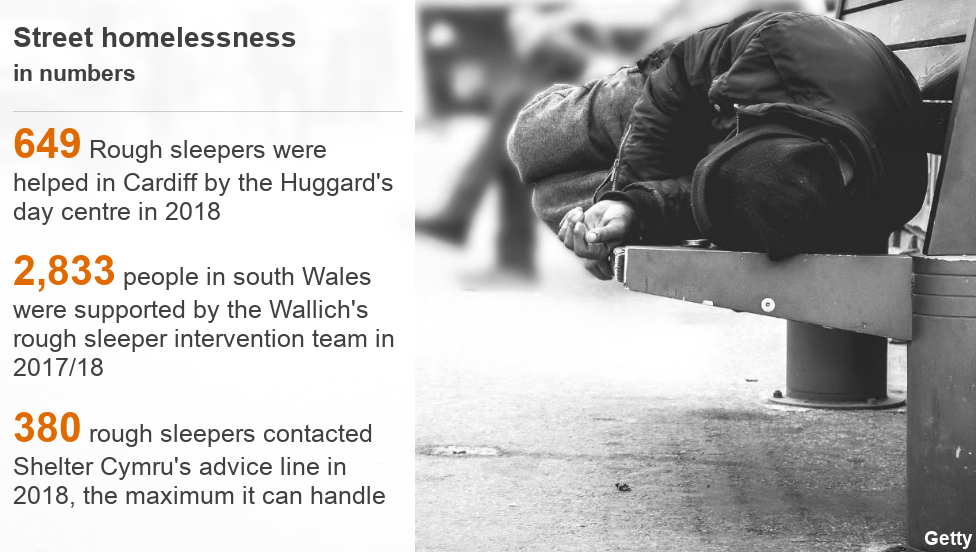
It was revealed in January that homeless people in Cardiff were choosing to live in tents rather than access the Huggard Centre, claiming the shelter was rife with drugs and thieves.
"There's not enough accommodation - there are no beds and no floor space," he said. "If you went down there after midnight, you would cry.
"Where there's not enough floor space, people are sleeping in the courtyard in flower beds. It is heartbreaking."
What's being done?
In January, Cardiff council said it was aware of more tents in the city centre and would be meeting with other agencies to "find a way forward".
Responding to the claim the problem is only getting worse, the council said it is "continuing to tackle the cycle of homelessness" with partners including Cardiff and Vale health board, police, substance misuse specialists and homeless services.
"With funding from Welsh Government, the service has been enhanced further and we are providing an enormous range of specialist help and support," said member for housing Lynda Thorne.
"To give you an idea, we now have a dedicated substance misuse worker; a dedicated mental health worker; an additional homeless nurse; access to a counsellor; and a therapeutic outreach worker."
Councillor Thorne said the council would soon be approaching the Welsh Government for further funding in order to continue its work.
- Published20 December 2018
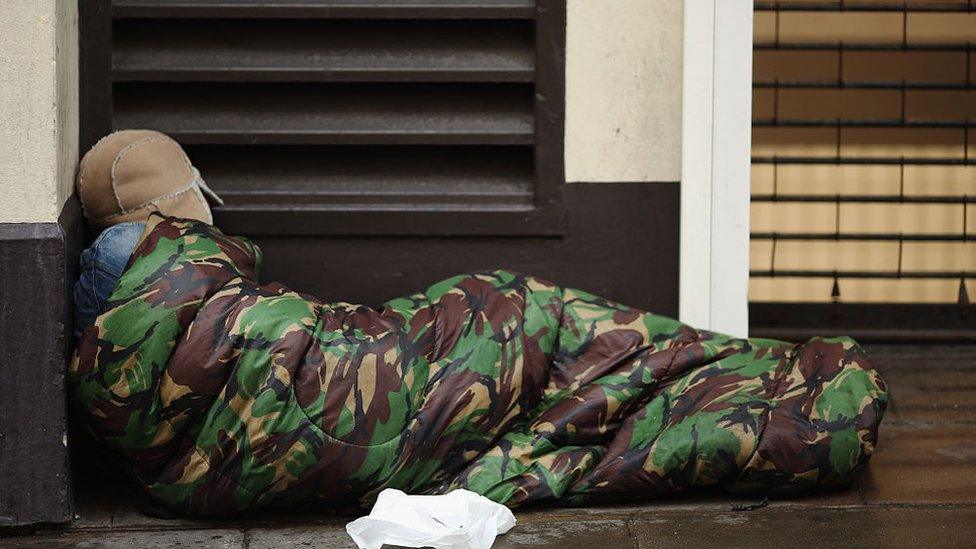
- Published26 February 2019
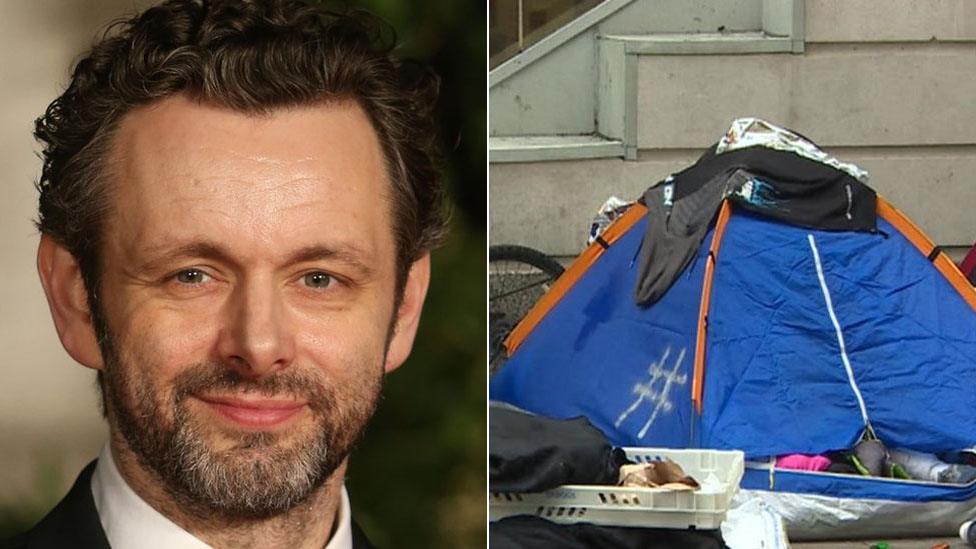
- Published25 February 2019
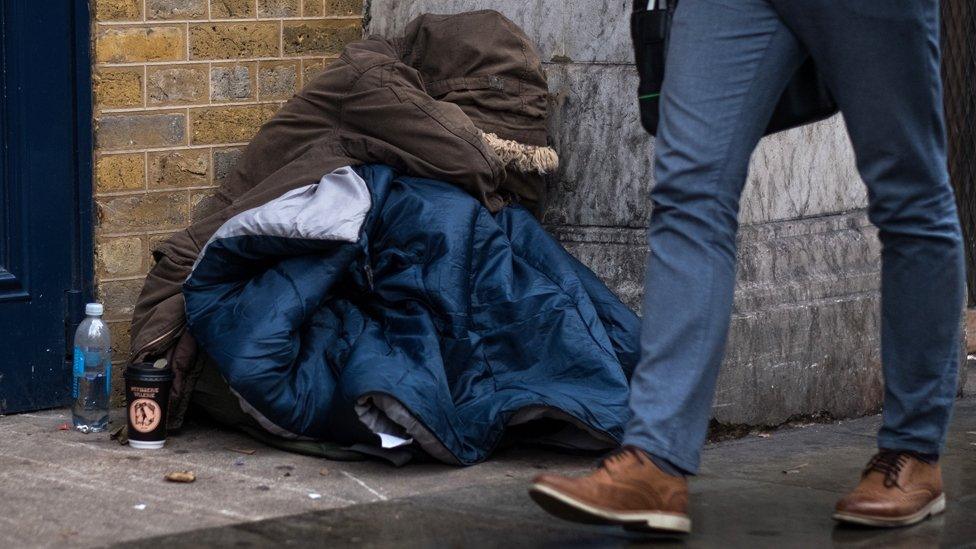
- Published25 February 2019

- Published25 January 2019
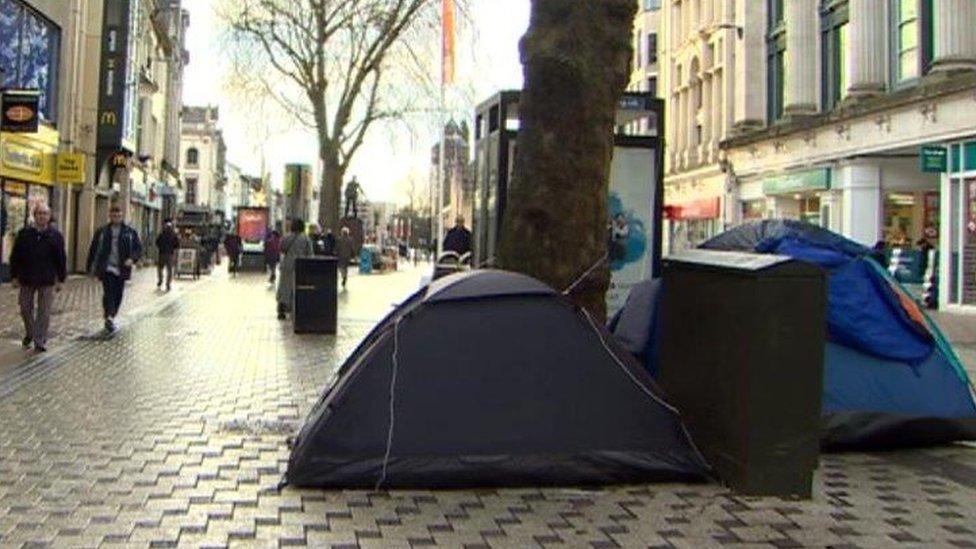
- Published19 January 2019
